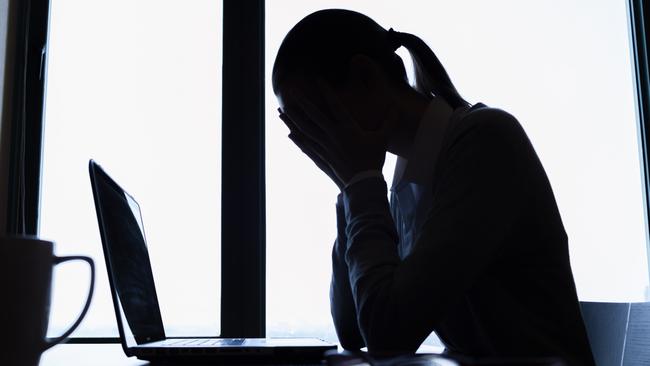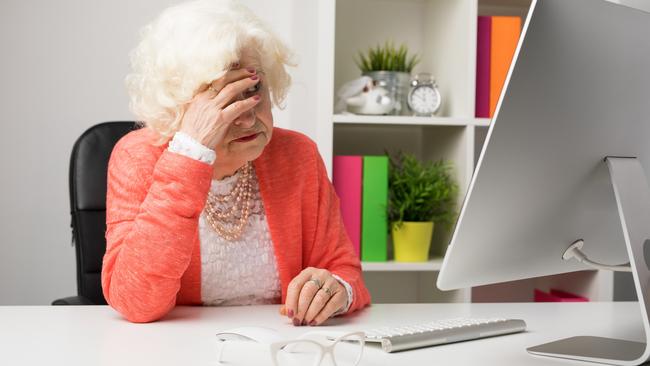Tory Shepherd: Gender pay gap is a crisis we can no longer ignore
As more and more women find themselves slowly sliding into poverty, it’s time for the government to step up and do the right thing for so many Aussies, writes Tory Shepherd.
That woman who has to go back to her abusive husband because she’s run out of money.
That mother living in her car with her kids because she couldn’t pay the rent.
And that grandmother walking squalid streets to get from the bus back to her tiny flat, where it’ll be tinned spaghetti for dinner again, and nothing left over for Christmas.
Their poverty was cumulative.
A lifetime of missing out on money.
The latest snapshot of the gender pay gap shows that it shrunk by more than a point to 21.3 per cent — yay!
That means women are earning on average $25,717 less a year than men.
Boo.
Figures from the Workplace Gender Equality Agency show the biggest drop in the gap since they started collecting data five years ago.
But WGEA director Libby Lyons said the pace of change is frustratingly slow as companies who know they have a problem haven’t taken any action to fix it.
So we have this glacial pace of change and no sense of urgency, at least in part because these statistics are always about averages and not about individuals.

There should be a dire sense of urgency because ultimately the poverty will be inflicted on the individuals: on the abused woman, the homeless mother, the hungry grandmother.
The statistics show us how widespread the problem is but not how devastating the outcome.
Or how bloody relentless the inequality.
Various researchers have found, again and again, that women find it harder to get an interview for the job they want.
Then they are treated more harshly in interviews.
Women enter the workforce earning a lower rate for the same job as a man.
Or they enter a lower-paying industry — and research shows that industries become lower-paying once women enter them.
So they’re paid less than men.
Then they take years out to raise children, during which they don’t earn superannuation, and when they come back they’re likely to be part-time or casual because they earn less than their bloke and do a higher proportion of the unpaid work around the home.
Then they are less likely to get a promotion or a pay rise either because they’re reluctant or shy. Or they’ve been made to feel they should be reluctant or shy.
You can chuck in here all the tumultuous things that can affect earning potential like divorce, domestic violence, and caring for parents.
And then, because of all those factors affecting their lifelong earnings, women retire with far less superannuation.
And they live longer.
It’s relentless.
Blow after blow. Single mothers told a federal inquiry in Adelaide this week that they were forced back to their abusive partners because welfare is not enough, or they can’t find work.
As many as one in four mothers surveyed by the National Council of Single Mothers and their Children had gone back because they couldn’t afford to live on welfare, or on part-time work.
The Grattan Institute last week argued that Australians will be OK — that most retirees will be comfortable. Their super and the age pension and lower costs will see them through.
Oh, but older women renters are in trouble.
Women over 60 are in Australia’s lowest income-earning group, and are the most likely “household type” to be living in poverty.
One in three single women are living in permanent poverty by the time they are 60.
“Although the gender pay gap has narrowed every year, progress is too slow,” Ms Lyons said, with her report finding there was still a gender pay gap in every industry and occupation.
We need to take swift and effective action. Not just to make the figures look good, but to stop successive generations sliding towards poverty.

A point on superannuation — I have never had a career break, I earn an above average wage, and I’ll be looking at retiring on about $40,000 a year.
That’s comfortable as long as I’ve paid off my house (but I won’t have).
Ms Lyons makes the point that companies are sweeping their failures on pay equality under the carpet.
They’re not acting even when they know there’s a problem.
So companies have to step up.
They also have to start making it easier for men to shoulder more of the load at home.
Women need to make sure they’re financially literate, realise just how critical their independence is and what a difference their superannuation can make.
And the Federal Government must realise the severity of the pay gap’s effects.
Everyone has to face up to the fact that, while there are many complex factors at play, discrimination is woven through the whole process driving more women than men towards dire poverty.
FOR financial advice contact the Salvation Army and FOR help contact Beyond Blue on 1300 22 46 36.

